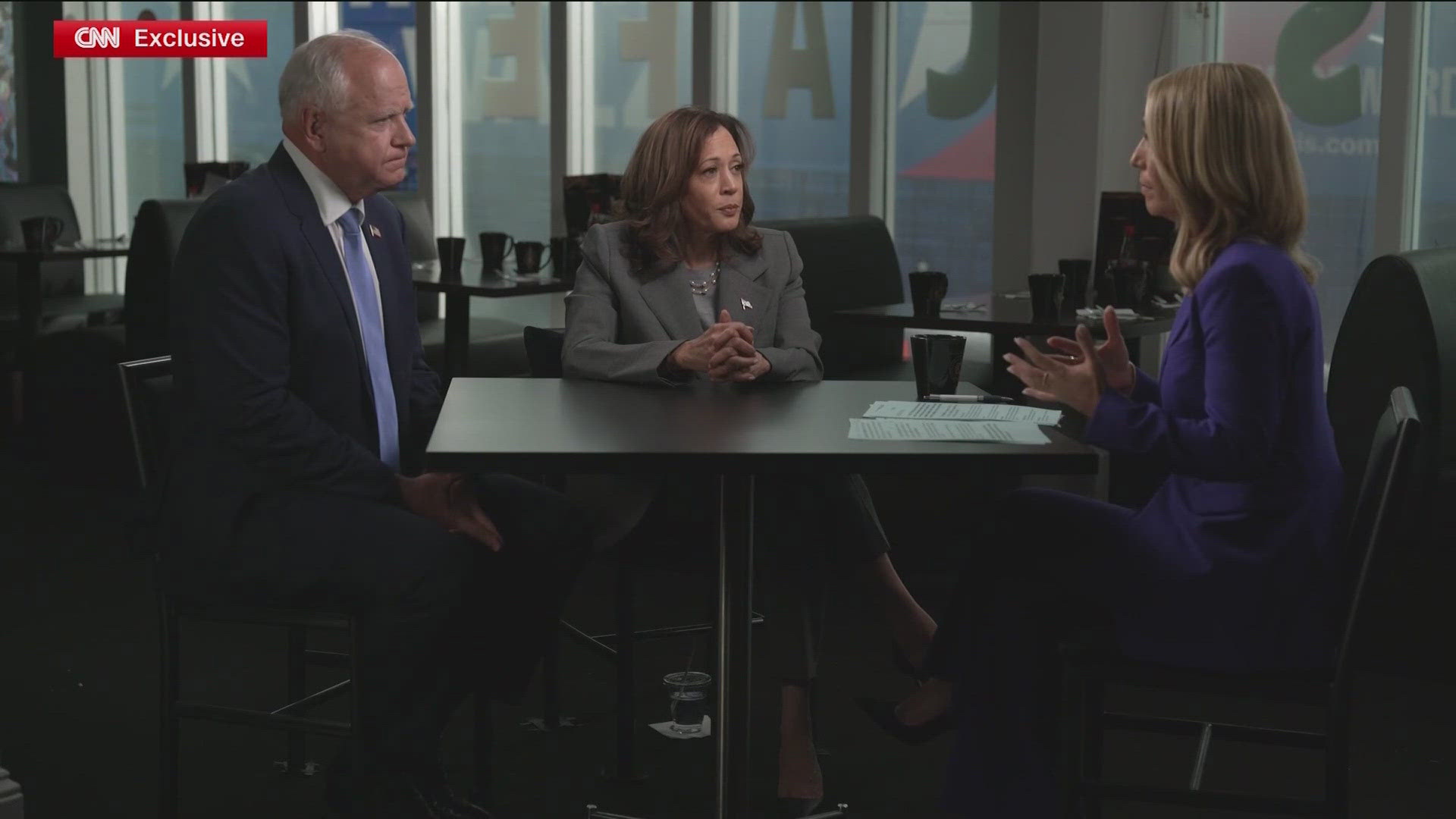WISCONSIN, USA — With a little more than two months until Election Day, the race for the presidency was in full swing Thursday as Vice President Kamala Harris and former President Donald Trump both made visits to key battleground states.
Harris and her running mate, Minnesota Gov. Tim Walz, went to Georgia, where Harris sat for her first major interview since becoming the Democratic nominee.
In that interview with CNN's Dana Bash, which aired during primetime on the cable network, Harris faced questions about her economic strategy, her foreign policy views in the Middle East, and her handling of the border crisis. On the economy, Bash asked Harris why she hasn't been able to implement her ideas -- like bringing down grocery prices and the cost of housing -- while serving as vice president.
"First of all, we had to recover as an economy," Harris said. "And we've done that. And I'm very proud of the work that we have done that has brought inflation down to less than three percent."
Although the interview largely focused on Harris, Gov. Walz faced his own line of questioning about some of the criticisms that Republicans have made since he joined the ticket. Walz responded to questions from Bash about his military record, comments he made about his family using IFV, and his characterization of a 1995 DWI arrest in previous campaigns.
"What do you say to voters who aren't sure whether they can take you at your word?" Bash asked.
Walz responded: "Well, I've been very public. I think they can see my students come out, former folks I've served with, and they do, they vouch for me. I certainly own my mistakes when I make them."
Both Harris and Walz defended their records and attempted to draw contrasts with the Trump-Vance ticket.
Dr. Joshua Scacco, an expert on presidential communication and the director of the Center for Sustainable Democracy at the University of South Florida, said the Harris-Walz interview was a significant moment for the campaign.
"There have been calls for the Vice President to essentially meet the press," Scacco said. "One of the key tests that candidates go through in a democracy is answering questions. They answer questions from voters, they answer questions from other elected officials, and they answer questions from the press. This is a first official step, in sort of a primetime audience, where the Vice President is answering questions alongside her running mate."
Meanwhile, on Thursday, Trump held an event in Michigan and then Wisconsin, where he interacted with voters in a town hall format in La Crosse, just 150 miles from the Twin Cities.
Moderated by former Democratic Rep. Tulsi Gabbard, who now supports the former president, Trump criticized the Biden-Harris administration's economic and immigration policies, referred to Harris as "Comrade Kamala," stated his own support for IVF, and pledged to bring jobs to Wisconsin.
The location was notable, given how critical Wisconsin has been to the last two elections and the fact that La Crosse County went to President Biden by double digits in 2020.
"It's a great country but we have to take it back. Because, our country's not feeling so well nowadays, and we're gonna bring it back and we're gonna make it healthy and beautiful and better than ever," Trump said.
The event lasted less than an hour but was notably different than many of his rallies.
Trump admitted to the audience that he did not know the La Crosse event was a town hall -- rather than a speech -- until his campaign told him on the plane. Trump said: "I don't even have any idea who we are doing it for, I don't know, is it for a network?"
"By Donald Trump mixing up the format that they're engaging in, they're hoping that draws some attention just by the change in sort of venue, format," Scacco said. "Part of that is also because the large rallies, when they're done, are now compared with Vice President Kamala Harris' rallies. That juxtaposition might not necessarily be what the Trump campaign wants, and that also might be why they are engaging in that type of format change."

